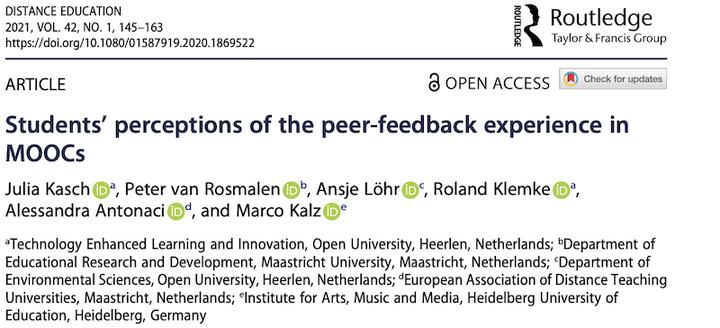Students’ perceptions of the peer-feedback experience in MOOCs

Abstract
Various studies advocate training students prior to a peer-feedback activity to ensure high quality of feedback. Next to investing in students’ peer-feedback skills, it is important to focus on the under- lying perceptions since perceptions influence learning behavior. We implemented an online peer-feedback training session in a massive open online course and examined students’ perceptions of peer- feedback and training focusing on their willingness, perceived use- fulness, perceived preparedness, and general attitude; and students’ peer-feedback experience and its relation to their perception. Analysis of a perception survey from 259 students revealed that the amount of prior experience results in significant differences in stu- dents’ perception. Students without prior peer-feedback experience scored higher on willingness, usefulness, preparedness, and general attitude compared to students with some prior experience. Those with a lot of experience showed the strongest positive perception scores. No significant differences for the effect of training on percep- tion could be measured with the available data.
Kasch, J., van Rosmalen, P., Löhr, A., Klemke, R., Antonaci, A., & Kalz, M. (2021). Students’ perceptions of the peer-feedback experience in MOOCs. Distance Education, 42(1), 145-163. https://doi.org/10.1080/01587919.2020.1869522